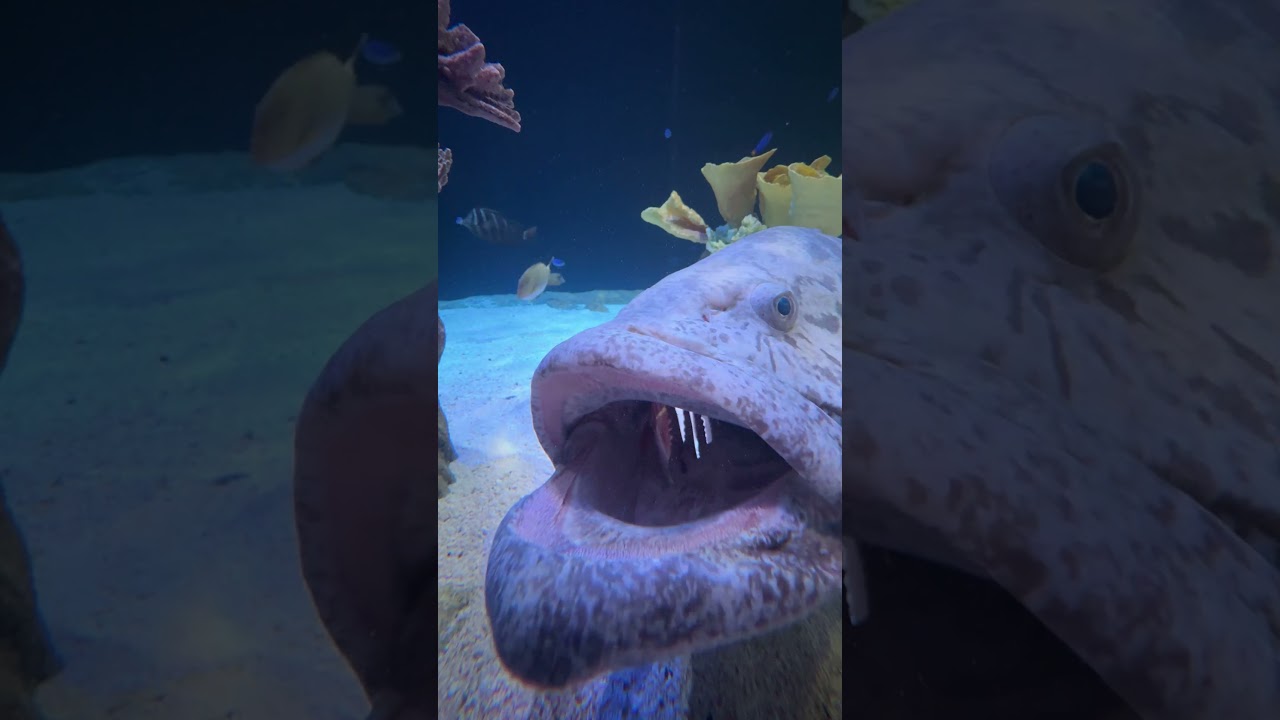- The intricate symbiosis between Tater the Potato Grouper and cleaner wrasses highlights mutual benefits.
- The role of cleaner wrasses in maintaining fish health and ecosystem balance.
- Challenges and strategies in conserving Potato Groupers and their habitats.
- Observing natural behaviors in captive settings for educational and conservation purposes is significant.
- Best practices in zoo management to simulate natural environments for marine species.
In the aquatic world, the interaction between different species often plays a pivotal role in maintaining the health and stability of ecosystems. One fascinating example is the relationship between Tater the Potato Grouper and cleaner wrasses. This mutualistic association provides a vivid illustration of nature’s intricacies and offers valuable insights into the behaviors and needs of marine creatures.
Potato Groupers, known scientifically as Epinephelus tukula, are significant marine predators. They inhabit reef environments in the Indian and Pacific Oceans, which are crucial in controlling prey populations. However, these majestic fish are prone to parasites and dead skin that can affect their health and well-being. Cleaner wrasses, small yet efficient, come into play here, offering a vital service by removing these harmful elements from the Potato Grouper’s skin, gills, and teeth. Tater the Potato Grouper enjoys this mouth-cleaning service, essential for its hygiene and health.
Cleaner wrasses are part of the Labridae family and are well-known for their cleaning stations on coral reefs, where they service a variety of fish species. This interaction is not a simple one-way street; it’s a complex partnership where both parties benefit. While the Potato Grouper receives a thorough cleaning, preventing infections and promoting overall health, the cleaner wrasses get a nutritious meal. This symbiosis showcases the intricate balance of ecosystems and how species can coexist and support each other.
Conservation of Potato Groupers and their environments presents various challenges. Habitat loss, overfishing, and climate change threaten marine biodiversity, including the delicate coral reef ecosystems home to both Potato Groupers and cleaner wrasses. Addressing these threats requires comprehensive strategies encompassing habitat protection, sustainable fishing practices, and efforts to combat climate change. Protecting the habitats ensures the survival of this unique cleaning behavior, which is crucial for the health of reef ecosystems.
Observing natural behaviors, such as cleaning symbiosis in captive environments like aquariums or zoos, has significant educational and conservation value. It allows visitors to gain a deeper appreciation of marine life and the intricate relationships that sustain it. Moreover, such observations can inform better zoo management practices, ensuring that captive environments closely mirror natural ones. Providing conditions that allow for the expression of natural behaviors is essential for the well-being of marine species in captivity. It helps educate the public about the importance of conservation.
Zoo management practices have evolved to simulate natural environments effectively for marine species. These practices include designing enclosures that reflect natural habitats’ physical and biological complexity and implementing feeding regimens that mimic natural diets and behaviors, such as cleaning interactions between species like Tater the Potato Grouper and cleaner wrasses. Such efforts enhance the quality of life for captive animals and serve as live models for conservation education, shedding light on the behavior, needs, and preservation of marine biodiversity.
The relationship between Tater the Potato Grouper and cleaner wrasses exemplifies the beauty and complexity of marine symbiotic interactions. It underscores the importance of each species in maintaining the health and equilibrium of ocean ecosystems. Through careful conservation efforts and informed zoo management practices, we can support the continuation of these vital relationships, ensuring a healthier planet for future generations. Understanding and preserving the natural world’s interconnectedness is crucial for maintaining biodiversity and ecosystem services that benefit all life forms, including humans.
*****
Source Description
Tater the Potato Grouper enjoys a mouth cleaning from the cleaner wrasses in the Tropical Reef Aquarium, reopening June 14.

